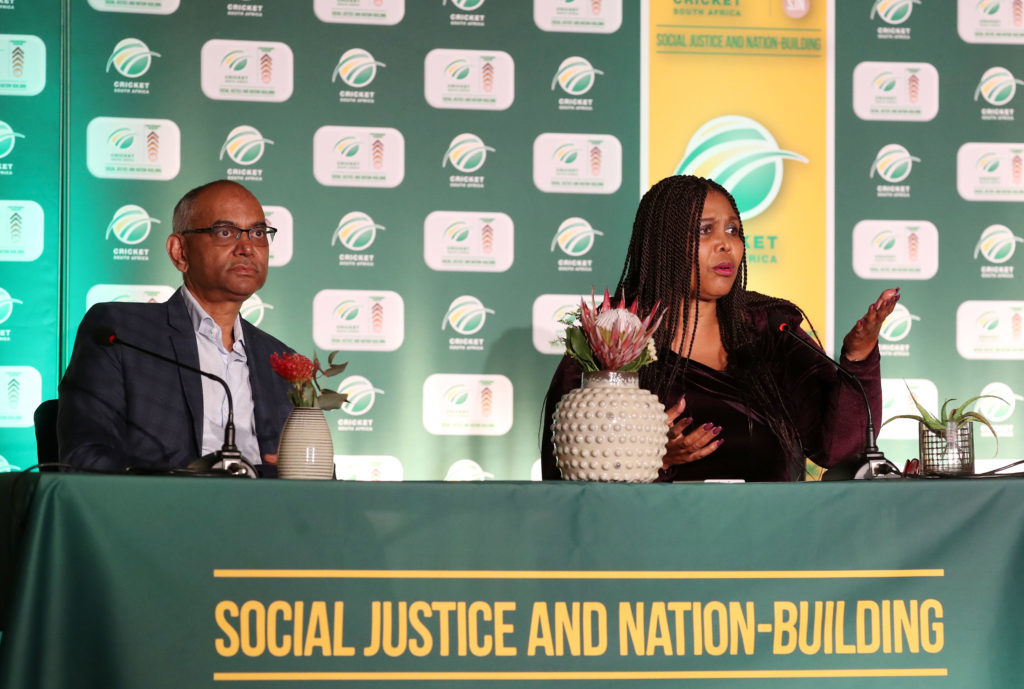The appointment of the next Cricket South Africa CEO must be a public process and the next board must feel the full weight of public and commercial stakeholder expectation, writes RYAN VREDE.
On Monday, it was officially announced that six CSA directors, including former acting president Beresford Williams, four other non-independent members and one independent member, Dheven Dharmalingam, had stood down. Hot on their heels followed the only remaining non-independent director, Zola Thamae, and the three remaining independents, Eugenia Kula-Ameyaw, Marius Schoeman and Vuyokazi Memani-Sedile.
This comes after strong and sustained calls from the public and private sector, as well as government, for them to do so. Initially they resisted, despite their – at best – complicity and – at worst – aid in the complete destruction of South Africa cricket’s governing body.
That they still believed they had a role to play in the restoration of South African cricket speaks to a deep sense of delusion that took hold at the game’s elite administrative level.
Just on Tuesday morning, former acting president Williams was on a Cape Town radio station doing what he does best – deflecting blame and protecting his self-interest. Williams noted that he stepped into the leadership role at a point where things had already gotten out of control. Not once did he show remorse for the manner CSA’s executive leadership – which he formed part of as president of the Western Province Cricket Association prior to his elevation to acting CSA president – allowed cricket to be compromised due to poor governance. Neither did he concede that the collective contributed in any way during his time as acting president.
Instead, he lamented being forced to resign despite the board having a recovery plan, which he said was being rolled out and showing good early success before the mass resignations. He noted that commercial partners had already decided to pull out of cricket long before CSA was making headlines for poor governance, intimating that the situation at CSA gave these partners a reason to abandon cricket. He added that the media had tainted the public’s view of the organisation and suggested that things were not as dire as they seemed.
Williams took no responsibility for the board’s role in the mess. This is consistent with his disgraced colleagues, one of whom – Eugenia Kula-Ameyaw – found time on Tuesday morning to tweet her support of the new Miss South Africa, but not acknowledge her role in CSA’s demise.
The board cherry-picked findings from the Fundudzi report to paint former CEO Thabang Moroe and a clutch of cronies as the villains. Moroe and co were certainly at fault, but the idea that they acted alon, or that the rest of the board were completely unaware of their behaviour, is laughable.
Thankfully, they are part of South African cricket’s past, although the nature of cricket administration in South Africa means that these types are rarely gone for good.
The future must be the focus now and an interim steering committee will be installed and mandated to not only stabilise cricket, but plot a future for it. Rihan Richards, who was named president of the members’ council on Monday, Thamae, Donovan May and John Mogodi will constitute a four-person interim board. They will have to present sports minister Nathi Mthethwa with their plans for the interim steering committee by close of business on Tuesday.
South African cricket governance must embrace a professional corporate culture that typifies the game’s best-run boards, England and Australia among them. This type of culture would filter down from the top, and thus any interim board has to include an acting CEO with considerable experience in the private sector, not a government-installed lackey with no interest in or appetite for the rebuilding job. Furthermore, there has to be a focus on appointing someone with a proven track record of securing significant corporate investment, given that CSA, and as a result all its affiliates and the game at large, are in a dire financial state.
Leadership matters and the future of South African cricket will depend largely on who is appointed not only to lead the interim steering committee, but who is voted into the CEO position when CSA eventually holds its AGM.
There is understandable public and commercial stakeholder fatigue on this matter, given its relentless and ever-changing nature. But now isn’t the time to go silent. Those in charge of plotting cricket’s future must feel the full weight of these two parties’ expectation.
Public pressure is most important, because the game belongs to the people and thus the appointment of the next CSA CEO must be a transparent, public process. CSA has a mandate to serve the people, not itself and its members’ interests. The body needs to be reminded of that constantly.







